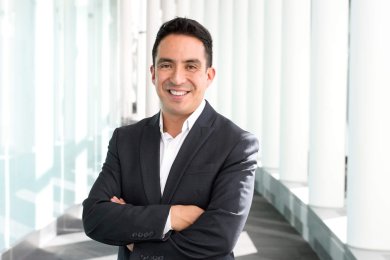Clay Routledge, faculty scholar for NDSU’s Challey Institute for Global Innovation and Growth and professor of management, has been selected to receive a $14,500 Discourse Initiative Research Grant from the Institute for Humane Studies.
Routledge’s project is titled “Does Existential Self-Regulation Promote Freedom and Flourishing?” Its goal is to study how existential psychology contributes to outcomes critical to a free and flourishing society. The outcomes include optimism, motivation, goal-pursuit, tolerance, resilience and entrepreneurship. The funding will be used to support empirical research and outreach on these issues. The project also is receiving funding from the Sheila and Robert Challey Institute for Global Innovation and Growth.
Routledge is a psychological scientist, writer, consultant and public speaker, whose research focuses on the need for meaning in life. He has published more than 100 scholarly papers, co-edited three books on existential psychology and written two books. He is writing a book on how nostalgia helps people live a more meaningful and inspired life.
His work has been featured in many major media outlets, and he has written articles for the New York Times, Wall Street Journal, Newsweek, Scientific American, National Review, Entrepreneur and Harvard Business Review. He was the lead writer for the TED-Ed lesson “Why Do We Feel Nostalgia?” He also is a senior research fellow at the Archbridge Institute.
The Discourse Initiative Research Grant program supports major research projects that hold significant promise of advancing a deeper understanding of ideas within the liberal tradition.
The Institute for Humane Studies was established in 1961 to support and partner with professors to promote the teaching and research of classical liberal ideas and to advance higher education’s core purpose of intellectual discovery and human progress.
The Challey Institute aims to advance understanding in the areas of innovation, trade and institutions to identify policies and solutions that enhance economic growth and opportunity.
As a student-focused, land-grant, research university, we serve our citizens.

